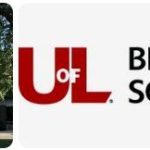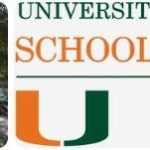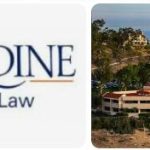St. Louis University School of Law (SLU LAW) is one of the oldest law schools in the United States, having been founded in 1843. It was founded by a group of lawyers and judges who wanted to create an institution that would provide legal education to those who could not afford to attend expensive private law schools. The school was originally located in downtown St. Louis and moved to its current location on the SLU campus in 1924. Over the years, SLU LAW has grown and changed significantly, becoming one of the top law schools in the country. In 1997, it became a member of the Association of American Law Schools and is now ranked among the top 100 law schools in America by U.S News & World Report. The school offers more than 50 courses for both full-time and part-time students, as well as several specialized programs such as international law, tax law, business transactions, health care compliance, environmental law and criminal justice. In addition to its academic offerings, SLU LAW also provides numerous extracurricular activities for its students including moot court competitions and student organizations that focus on various areas of legal practice. The school also provides excellent career services including job placement assistance for graduates seeking employment after graduation.
St. Louis University School of Law is located in the state of Missouri. As one of the leading law programs, St. Louis University School of Law has a high average LSAT score of 154-160 when recruiting new students. As a return, the median starting salary for law graduates reaches $59,500 per year. See the following table for detailed admissions information and career profiles of St. Louis University School of Law.
Admissions: St. Louis University
St. Louis University School of Law is one of the top law schools in the country, boasting a prestigious reputation and a highly competitive admissions process. The school offers both full-time and part-time programs, allowing students to tailor their education to their individual needs. The average GPA of admitted students is 3.62 and the median LSAT score is 159. Additionally, the school accepts applicants from a variety of backgrounds, including those with varying levels of work experience and other unique qualifications. Those who are accepted into St. Louis University School of Law are given access to an array of resources that can help them succeed in their studies, including academic advising services and career counseling opportunities. The school also offers several scholarships and grants that can help reduce the cost of tuition for those who qualify. In addition, the school has an active alumni network that provides mentorship opportunities for current students as well as networking connections for future job prospects after graduation.
| Fall 2019 Admissions and Enrollment Statistics | |
|---|---|
| Total number of full- and part-time applicants | 2,284 |
| Total number of full- and part-time acceptances | 1,145 |
| Overall acceptance rate | 50.1% |
| Total number of full- and part-time first-year students enrolled | 331 |
| Number of full-time program applicants | 2,140 |
| Number of full-time program acceptances | 1,024 |
| Full-time acceptance rate | 47.9% |
| Number of first-year full-time students enrolled | 243 |
| Number of part-time program applicants | 480 |
| Number of part-time program acceptances | 171 |
| Part-time acceptance rate | 35.6% |
| Number of first-year part-time students enrolled | 88 |
| Fall 2019 GPA and LSAT Scores | |
| 25th-75th percentile GPA scores for all students | 3.16-3.61 |
| 25th-75th percentile LSAT scores for all students | 153-159 |
| 25th-75th percentile undergraduate GPA for full-time students | 3.21-3.64 |
| 25th-75th percentile LSAT scores for full-time students | 154-160 |
| 25th-75th percentile undergraduate GPA for part-time students | 3.02-3.45 |
| 25th-75th percentile LSAT scores for part-time students | 152-155 |
Careers: St. Louis University
| Bar Statistics (Winter and Summer 2018 administrations) | |
|---|---|
| State where the greatest number of first-time test takers took the bar | MO |
| School’s bar passage rate for first-time test takers | 94.2% |
| Statewide bar passage rate for first-time test takers | 91.3% |
| Class of 2018 Graduates | |
| Total graduates | 256 |
| Graduates employed at graduation | 70.0% |
| Graduates known to be employed nine months after graduation | 92.9% |
| Starting Salaries of 2018 Graduates Employed Full-time | |
| 25th percentile private sector starting salary | $50,000 |
| Median private sector starting salary | $59,500 |
| 75th percentile private sector starting salary | $80,500 |
| Percent in the private sector who reported salary information | 78% |
| Median public service starting salary | $39,000 |
| Areas of Legal Practice (Class of 2018) | |
| Percent employed in academia | 0.0% |
| Percent employed in business and industry | 17.0% |
| Percent employed in government | 7.0% |
| Percent employed in all judicial clerkships | 3.0% |
| Percent employed in law firms | 62.0% |
| Percent employed in public interest | 11.0% |
| Percent employed in an unknown field | 0.0% |
| Percent employed in a judicial clerkship by an Article III federal judge | 2.3% |
| 2018 Graduates Employment Location | |
| Graduates employed in-state | 62% |
| Graduates employed in foreign countries | 0% |
| Number of states where graduates are employed | 23 |
| New England (CT, ME, MA, NH, RI, VT) | 0.2% |
| Middle Atlantic (NY, NJ, PA) | 0.1% |
| East North Central (IL, IN, MI, OH, WI) | 19.9% |
| West North Central (IA, KS, MN, MO, NE, ND, SD) | 70.1% |
| South Atlantic (DE, DC, FL, GA, MD, NC, SC, VA, WV) | 9.2% |
| East South Central (AL, KY, MS, TN) | 0.1% |
| West South Central (AR, LA, OK, TX) | 0.1% |
| Pacific (AK, CA, HI, OR, WA) | 0.2% |
| Mountain (AZ, CO, ID, MT, NV, NM, UT, WY) | 0.1% |
| Employment location unknown | 0.0% |
| Career Services | |
| (Data appear as originally submitted by this school) | |
| Career services operations | The Career Services Office provides career counseling to both current students and alumni. The Office offers programs throughout the school year to explore both traditional and non-traditional career paths. Assistance is provided for resume writing and interviewing techniques. Assistance is provided in using resources for job openings, such as web sites, employment guides and media postings. |
| Job Type | |
| Bar admission required or anticipated (e.g., attorney and corporate counsel positions, law clerks, judicial clerks) | 76.0% |
| J.D. preferred, law degree enhances position (e.g., corporate contracts administrator, alternative dispute resolution specialist, government regulatory analyst, FBI special agent) | 23.0% |
| Professional/other (jobs that require professional skills or training but for which a J.D. is neither preferred nor particularly applicable; e.g., accountant, teacher, business manager, nurse) | 2.0% |
| Nonprofessional/other (job that does not require any professional skills or training or is taken on a temporary basis and not viewed as part of a career path) | 0.0% |









